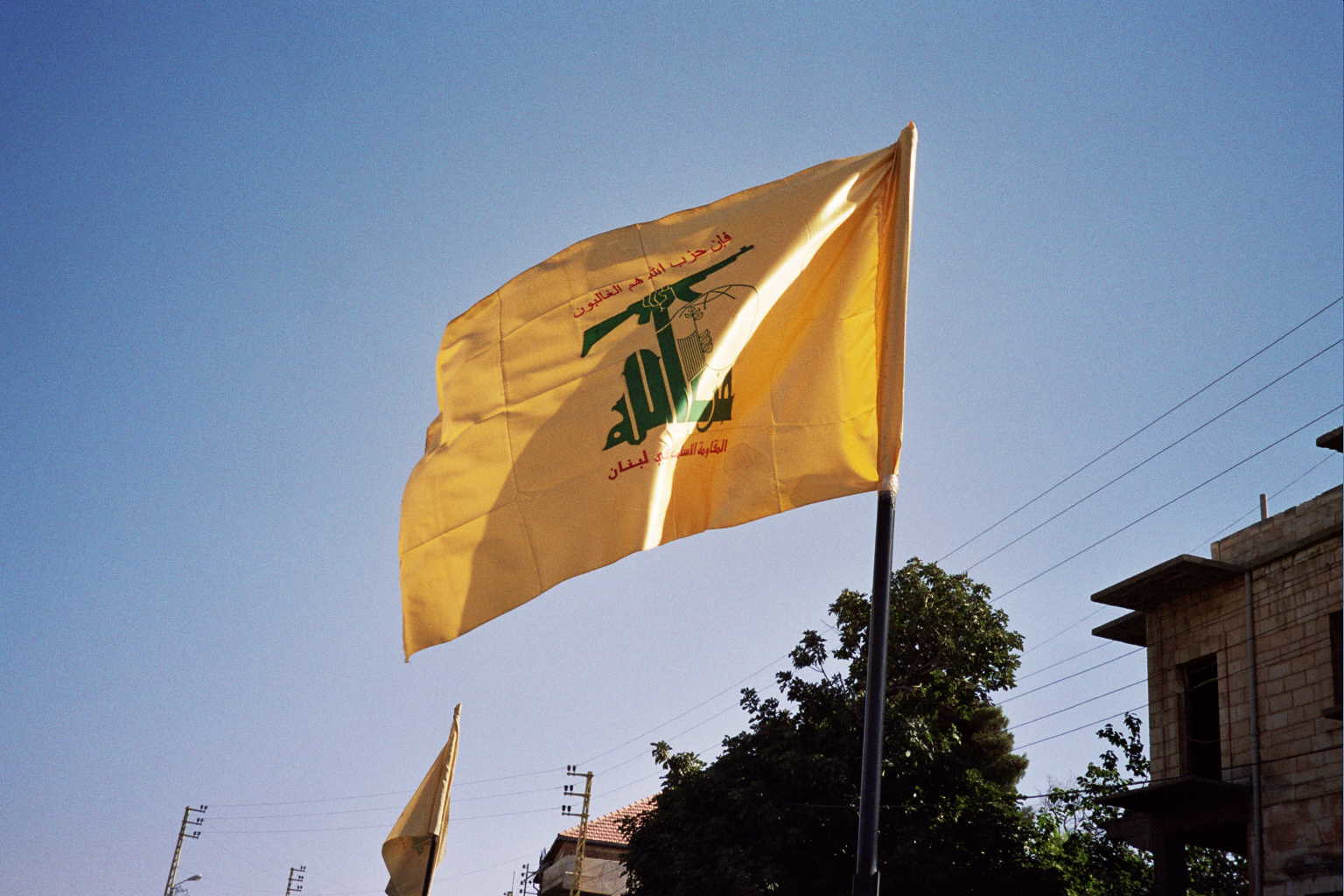July marked the 17th anniversary of the 2006 war between Israel and Hezbollah. For Hezbollah, the occasion was ripe for incitement.
On July 12, activists attacked the Israel-Lebanon border fence in two separate incidents. In the first, several individuals approached the fence in a sabotage attempt before being dispersed by the explosion of a “non-lethal weapon.” In the second, protesters waving Hezbollah flags ignited fires on the Lebanese side of the border near the Israeli village of Metula. Footage later revealed that, on the same day, activists climbed an Israeli border tower, hoisted flags, and stole surveillance equipment.
Another provocation followed on July 15, when upwards of twenty Lebanese citizens, including a Hezbollah-aligned member of parliament, crossed into Israeli territory.
Hezbollah’s raison d’etre is to confront Israel, so provocations are hardly out of the ordinary. But only several months ago, both U.S. and Israeli experts insisted that a war on Israel’s northern border had become far less likely.
When Washington brokered a maritime border agreement between Israel and Lebanon last fall, supporters of the deal lauded the accomplishment as a win for both countries. By the time of the final arrangement, Israel conceded the disputed waters to Lebanon, including the rights to a gas field that straddles the border, in exchange for a potential cut of the revenues drawn from the Israeli side. Lebanon got economic opportunity and Israel enhanced security. The deal strengthened deterrence, so the logic went, because it gave Lebanon—and more importantly, Hezbollah—something to lose: Hezbollah would think twice before aggressing because Israel could retaliate by striking gas platforms in Lebanese waters.
Officials on both sides of the Atlantic articulated this point, including Dennis Ross, a veteran of Washington’s Israeli-Palestinian mediation teams. “While Hezbollah’s enmity toward Israel remains unchanged,” he wrote, “its stake in avoiding conflict has grown.”
The argument of mutual deterrence appeared misguided from its inception, not the least because Washington pushed the Israelis to strike a deal under Hezbollah’s threat of force. By doing so, the Biden administration effectively taught Hezbollah that putting a gun on the table during negotiations leads to Israeli concessions. How this encourages restraint is hard to discern.
Yet, however faulty the logic was then, today it has completely eroded. Over the past few months, Hezbollah has escalated provocations along the Blue Line—the de facto border between Israel and Lebanon. Last week’s events are just the tip of a much larger iceberg.
In March, a roadside bomb planted by a Hezbollah terrorist detonated near Israel’s Megiddo Junction critically injuring a motorist. The Israeli Defense Forces (IDF) later confirmed that the operative used a ladder to breach the border fence. He was shot and killed after the Shin Bet and a police unit found him “in possession of weapons, including an explosive belt ready to be activated.”
The following month, 34 rockets were launched from Lebanon into northern Israel. Hezbollah denied responsibility but, given the group’s tight control over southern Lebanon, it’s hard to believe they were innocent bystanders. Hezbollah likely had advance knowledge and allowed the attack to proceed.
Then, in June, the Israeli government revealed that Hezbollah set up two armed military posts in a contested border area under Israeli control. One may have since been removed. But as of writing, the second post remains, despite an Israeli request that the United Nations Interim Force in Lebanon (UNIFIL) dismantle it.
Next, news broke that over two dozen Lebanese soldiers, many of them armed and in uniform, along with members of Hezbollah briefly crossed into Israeli territory. A day later, an anti-tank missile was fired into Israel from Lebanon, prompting IDF artillery shelling in return.
A flurry of diplomatic activity coincided with these provocations, creating a sense of déjà vu. Amos Hochstein, Washington’s point man for the maritime negotiations, was back in Israel on July 11th, where he reportedly discussed cross-border tensions with Prime Minister Benjamin Netanyahu and Israeli National Security Advisor Tzachi Hanegbi. At the same time, officials in Beirut began pressing for land border demarcation talks with members of the United Nations Security Council. “This can solve the issue of Hezbollah and northern Ghajar as well as other problems, so that each side knows its border limits and acts accordingly,” Lebanon’s caretaker Foreign Minister Abdallah Bou Habib explained.
Hezbollah chief Hassan Nasrallah then chimed in. In a speech marking the anniversary of the 2006 war, Nasrallah maintained that “Lebanon’s land border is demarcated and clear” and, echoing threats levied against Israeli rigs last summer, warned that “if Israel takes action against tents that have been set up across the blue line – it will not go unnoticed. This is Lebanese land and must be in Lebanon’s hands at any cost and it is Hezbollah’s responsibility to do so.” On land as in sea, Hezbollah will play “bad cop” to the government’s good. The approach is to force American involvement by escalating tensions and have the United States deliver a win for Lebanon (in this case, Israeli withdrawal from the border village of Ghajar).
Whether or not land border talks begin remains to be seen. But nine months after Washington brokered the maritime deal, Hezbollah appears to be as emboldened as ever and ready to play offense should any settlement at the border fail to meet its terms. If indeed there’s a sequel to the maritime episode, let’s hope it commences with more sober expectations.
Natalie Ecanow is a research analyst at the Foundation for Defense of Democracies. FDD is a Washington, DC-based, nonpartisan research institute focusing on national security and foreign policy.

